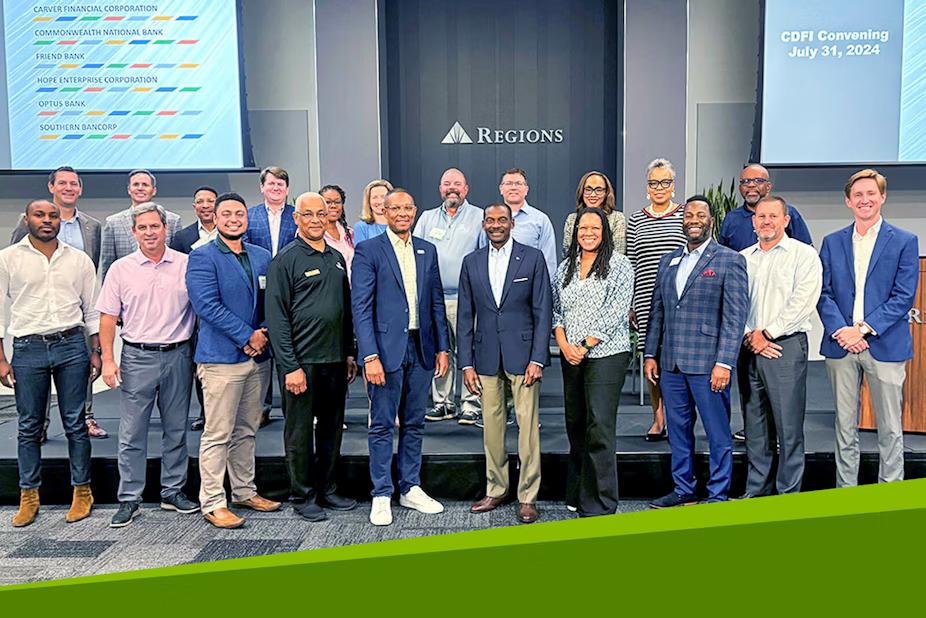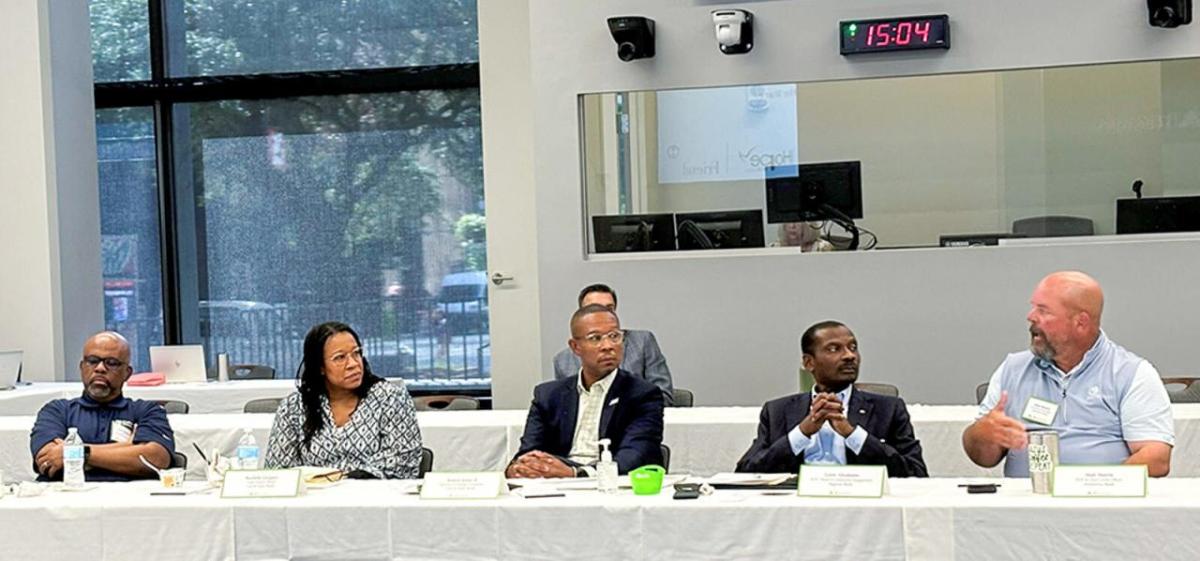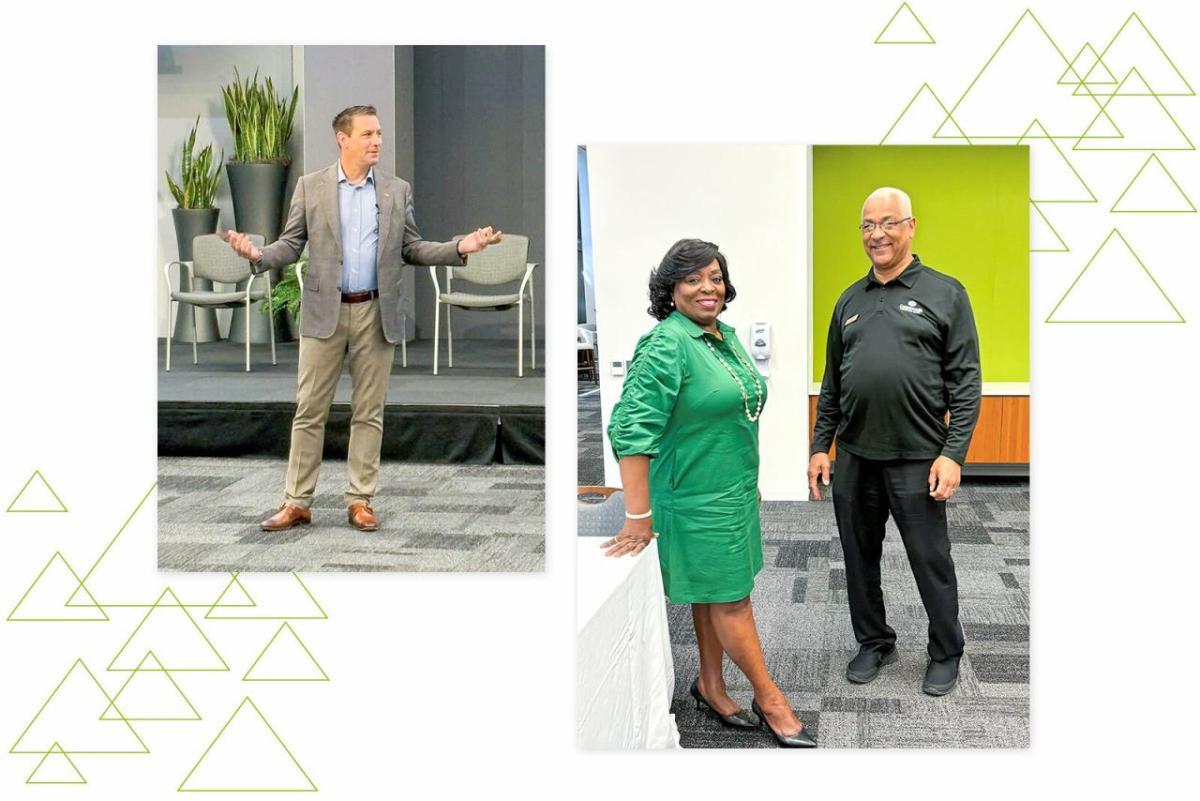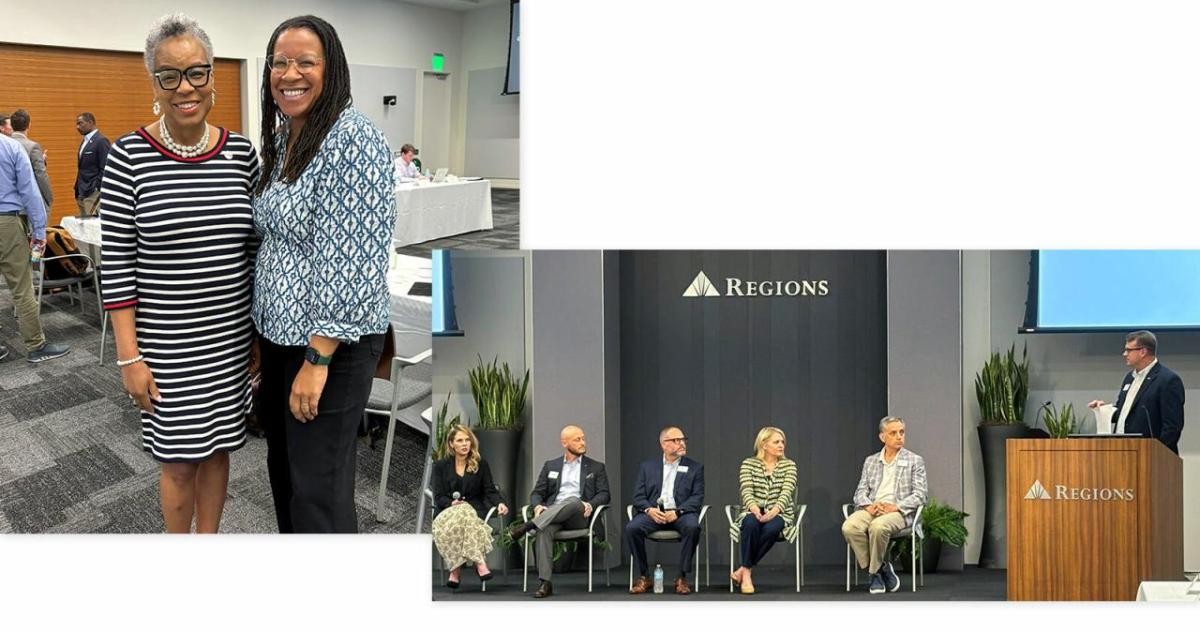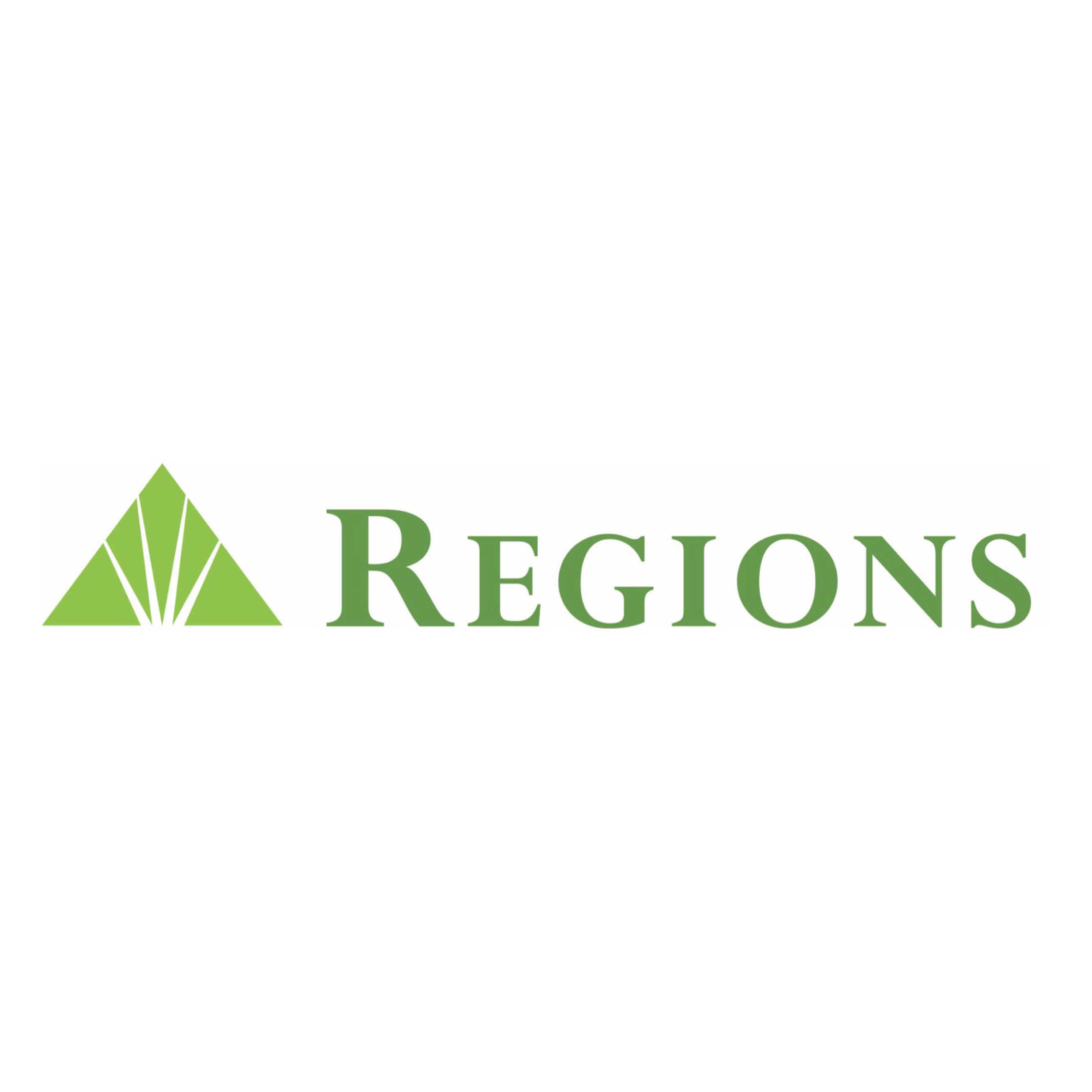‘We Have a Vested Interest in Helping Communities Grow’
Regions Bank and Community Development Financial Institutions team up to ensure everyone has access to financial services and opportunities to succeed.
By Candace Higginbotham
Leroy Abrahams, head of Community Engagement at Regions, welcomed the attendees of the third annual Regions Bank CDFI Convening by outlining shared priorities for the leaders in the room.
“We have a vested interest in helping communities grow,” Abrahams said. “We all benefit when our communities are successful, and CDFIs play a critical role in that growth and success.”
Community Development Financial Institutions, or CDFIs, are private financial institutions dedicated to delivering responsible, affordable lending to help low-income, low-wealth, and other disadvantaged people and communities join the economic mainstream.
Support for CDFIs has long been a part of Regions’ community engagement strategy, and the collaboration has increased in recent years. Regions Bank and the Regions Community Development Corporation continue to provide lending and investments, and Regions Bank offers shared bank services, as well as subject-matter expertise, collaboration and technical assistance.
The annual CDFI Convening is a good example. Abrahams and Wendi Boyen, head of Community Development Lending and Investment at Regions, launched this program a few years ago to bring leaders from Regions and CDFIs together in the same room to share ideas and talk about how to leverage these important relationships to better serve our communities.
“CDFIs are valuable because of their interaction with communities and flexible products and services,” Abrahams said. “They can do things midsize and large banks can’t do.”
This year, Regions hosted 14 CEOs and leaders from CDFIs across the bank’s footprint.
As in past years, the agenda featured presentations by executives from Regions and guest institutions, covering topics suggested by the CDFI participants.
But the real conversation originated off the podium. Instead of a series of one-way presentations, the meeting consisted of two half-days of dialog and Q&A.
We all benefit when our communities are successful, and CDFIs play a critical role in that growth and success.
Leroy Abrahams, head of Community Engagement at Regions
And that’s exactly what Abrahams and Boyen wanted.
The CDFI executives had a lot of questions for Regions Treasurer Deron Smithy and Chief Investment Officer Alan McKnight, who talked about the economic landscape, balance sheet management, interest rate risk and liquidity management. The audience encouraged the speakers to elaborate on hedging strategies, deposit pricing and other topics of keen interest.
“We’re all facing the same economic risks, no matter the size of the institution,” Smithy said. “We just have to understand the range of things that can happen and be prepared, even for the unexpected.”
The participants were also highly engaged with the Regions Human Resources team, who talked about recruiting, talent development, succession planning and benefits. Top of mind topics for the audience were attracting and retaining younger workers and employee engagement.
That conversation was a good segue into Paula Drake’s talk, which advised the group about how to tell their story to win business and attract and retain employees. Drake, head of Corporate Marketing and Communications at Regions, told the leaders their brand is their most important commodity, and they should use it effectively to build a greater connection with their stakeholders.
The CDFI leaders were very interested in hearing from Brian Jackson, head of Consumer Products and Origination Partnerships, and Brandon Greve, a Consumer Banking executive at Regions. The attendees had the opportunity to visit the downtown Birmingham branch just outside the meeting room to see first-hand the design and technology innovations Regions is successfully implementing throughout its footprint.
One of the most interactive discussions of the meeting focused on Risk Management. Chief Risk Officer Russ Zusi had an open dialog with the executives around topics that all financial institutions are dealing with right now including credit, liquidity, cyber security, compliance, data management, change management, consumer protection and climate risk.
The conversation around climate risk continued when Brandon England, director of energy efficiency lending at Pathway Lending, took the floor. Much of that discussion centered on the Greenhouse Gas Reduction Fund, a new EPA program created by the Inflation Reduction Act. The fund mobilizes financing and private capital for greenhouse gas- and air pollution-reducing projects in communities.
Pathway Lending has administered the Tennessee Energy Efficiency Loan Fund since 2010 to finance energy-saving lighting, efficient HVAC replacement units, solar panels, cool roofs and other projects.
“Our clients have seen energy benefits, as well as improved business impacts from the program,” England said. Using the Greenhouse Gas Reduction Fund capital, Pathway Lending and other CDFIs will be able to finance these types of projects throughout the country.
Another CDFI participant, John Olaimey president and CEO of Southern Bancorp Bank, led a discussion about the history and primary objectives of CDFIs and how their corporate organizational structure allows them to effectively serve their communities. Olaimey recounted that Southern Bancorp was one of the first CDFIs in existence and talked about their priority to “balance margin and mission.”
This was one of our most enlightening sessions, with so much information and helpful insight from both our internal Regions leaders and our community partners.
Wendi Boyen, head of Community Development Lending and Investment at Regions
“We’re a social justice organization but our shareholders ensure we generate returns,” he said.
The final hour of the meeting was dedicated to a roundtable discussion about business loan underwriting, led by Danielle Ware of Hope Credit Union and Charlie Breedlove and Lawrence Johnson of Friend Bank. These executives outlined their innovative and solutions-based underwriting processes and services.
“You have to dig a little deeper and understand your customer, their unique situation, their business – and be an advocate for them,” Ware said. With audience heads nodding, others could obviously relate to this description of a boots-on-the-ground, community-focused way of doing businesses.
And that brought the meeting full circle, recalling Abraham’s opening comments about the unique capabilities of these institutions and why they’re so important to Regions. Growing and maintaining these business relationships ensure individuals and families in our communities have access to banking products and services to help enrich their financial lives.
“This was one of our most enlightening sessions, with so much information and helpful insight from both our internal Regions leaders and our community partners,” Boyen said. “The informal conversations will continue, and we’re gathering feedback to ensure these meetings deliver actionable content to everyone involved.”

